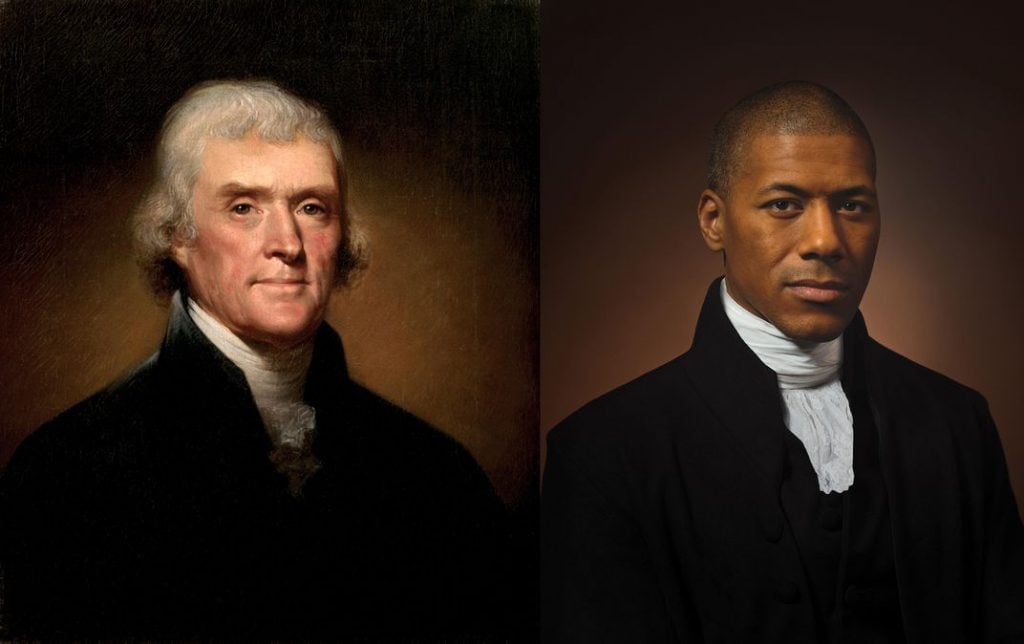
Shannon LaNier, a TV news anchor, has complex feelings about being descended from Thomas Jefferson and Sally Hemings. "He was a brilliant man who preached equality, but he didn't practice it. He owned people. And now I'm here because of it."Drew Gardner / Smithsonian Magazine
Jefferson the abolitionist
From his earliest days as a plantation owner, lawyer, and member of the Virginia House of Burgesses, Jefferson took steps against slavery:
- He argued that it was a threat to society.
- He drafted a new Virginia Constitution in 1776 abolishing slavery.
- He proposed legislation in 1778 to make slave trade to Virginia illegal.
- He proposed an ordinance in 1784 to ban slavery in the Northwest Territories.
- He discouraged labor-intensive crops like tobacco in favor of wheat.
The U.S. Congress abolished the slave trade into America in 1808, but the slave population in the South was self-sustaining by then. Slavery was only becoming more important to the South's economy, and the number of slaves in Virginia increased 60% between 1790 and 1830 to almost 470,000, or 39% of the total state population.
Jefferson the slaveholder
There was a problem with Jefferson's unsuccessful attempts at abolition: he was a racist. He wrote of "the real distinctions which nature has made" between European and African descent, reminiscent of John Stuart Mill's description of the African "race itself" as too immature for democracy. Jefferson did not believe that Whites and Blacks could co-exist peacefully in a free society, and he proposed resettling freed slaves in Africa. He was influenced by slave revolts in Haiti from 1791 to 1804, and Gabriel Prosser's in Virginia in 1800.
Jefferson wrote this description of maintaining slavery:
" . . . we have the wolf by the ear, and we can neither hold him, nor safely let him go. Justice is in one scale, and self-preservation in the other."
Jefferson feared the United States would be destroyed by slavery, either in a race war as brutal as Haiti's, or a civil war if part of the country continued slavery. He was right.
No comments:
Post a Comment